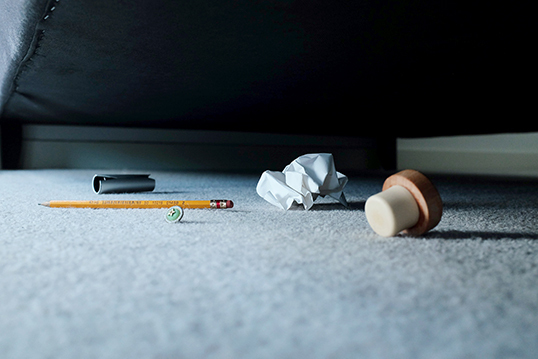Model of a horror short story: the doorknob slowly turns, when you don’t expect anyone to enter.
Model of a funny short story: the doorknob falls off into someone’s hand, just when they have to make a lucky exit.
Model of a realist short story: the doorknob’s description covers two pages, for no particular reason.
Model of a fantastic short story: the doorknob turns, although it shouldn’t.
Model of a crime short story: the proof is not in the doorknob.
Model of an adventure short story: someone is hanging onto the doorknob, despite all laws of physics.
Model of a fairy tale: the doorknob is just an instrument, though neither the hero nor the antihero.
Model of a postmodern short story: the doorknob is both the hero and the antihero. It has been mentioned in several key places, but not because it holds proof. The door opens quickly and expectedly, but it leads to a place that is neither a lucky exit nor subjected to the laws of physics.
Trap Short Stories: Quicksand
You can sink in this type of short story very easily. While slowly sinking, you curse yourself for your preconceptions regarding stories with firm grounds. There is only one way out: to grab onto a story-branch, given that it is within your reach, as well as resilient enough for inattentive readers such as yourself. If it happens to swallow you completely, you’ll have a few more seconds before a bulldozer-story comes to get you out. However, they are very rarely where and when you need them to be; that is why you can reject this type of option without giving it much thought. If it’s any consolation: no one has ever returned to tell what it is like beyond these stories—this gives them a transcendental dimension of sorts and turns you into something of a mythical hero.
Irritating Short Stories: Ashtray
When you make a short story out of a pile of cigarettes, a stuck chewing gum or two, a crumpled piece of paper, a nail clipping that flew off only to be found on the couch a few days later, a hairball, and other bits and pieces, you cannot but praise its practicality, accessibility, and social value. However, this utilitarian dimension does not exclude its profound aesthetic, and even transcendental value, as it often becomes a central temple of so many words that will never be uttered with the same tone, in that same order, with the same passion, and on the same occasion. The only downside of this type of short story is that it soon becomes stuffed with trifles and starts to suffocate the reader, leaving them with the feeling that it needs to be emptied out or wiped, for both practical and aesthetic reasons. There’s simply not enough room for all short stories. They start to smell.
Traveling Short Stories: Suitcase
Short stories are like a suitcase for short-distance destinations. We pack only the essentials, but we are left with that bitter feeling that we have forgotten something, that we will miss something, out there, beyond its borders. Even when we have made the most rational use of the space, when we have packed the smallest toothpaste, when we have precisely measured our underwear, our travel book—a light, almost weightless edition—there’s that queasy feeling still. Are those damned zippers really all that necessary?
Beginner Short Stories: Dandelion
There’s a type of short story that hardly anyone notices. It is a weed, it isn’t lush; it hasn’t got attractive colour, it doesn’t smell; no one sighs at its sight. A child’s hand will pluck it just to blow it, but not to take it home and put it in a vase. When the seed of this type of short story is dispersed, children cover their ears, because they were told it might make them deaf. Because of the wind or of that childish curiosity, it continues to defy beauty and human vanity.
Lucky Short Stories: Four-Leaf Clover
There are certain places where only four-leaf clovers grow. They are rare, though not inaccessible. I don’t, however, believe that anyone has ever thought that a four-leaf clover would bring them a lucky short story. It is usually placed to dry between the pages of heavy books, only to be left there forgotten, in their tiny herbarium of luck, for a very long time.
Unlucky Short Stories: Notice
Missing: a short story. Goes by the name of Mime Sis. Very sweet and fearful. If you see it, lure it onto a sheet of paper. Or report it to your nearest fiction station.
Functional Short Stories: Lock
When you hear a “click,” the story is ready.
Short Stories with a Happy Beginning, but a Sad Ending: Dust under the Bed
This is a type of short story you could write only if something rolls under the bed by accident. An earring, a pencil, a cap, a crumpled piece of paper with the beginning of a short story. A completely new worldview opens before your eyes. The world of lost things: the other earring, that pencil that went missing from the book you never finished reading, the cap of that anti-aging cream, the crumpled piece of paper with the beginning of the short story you never wrote. The earrings can be reunited in the jewellery box. The pencil is placed in the middle of a new book that is dangerously close to being left unfinished. The cap covers the cream that does not manage to cover your wrinkles. You shake the dust from the crumpled piece of paper, you open it and finally finish that short story, although it is completely different now, unrecognizable. You start to suspect that there really might be monsters living under the bed.

